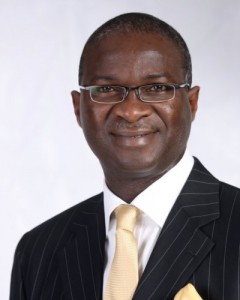Ribadu Report: Fashola laments presidency’s delay in probing subsidy culprits
 Lagos State Governor, Mr. Babatunde Fashola (SAN) has blamed the presidency for delaying investigations into the report of the Petroleum Revenue Taskforce.
Lagos State Governor, Mr. Babatunde Fashola (SAN) has blamed the presidency for delaying investigations into the report of the Petroleum Revenue Taskforce.
Fashola said this at the 2012 Kuramo Conference themed, “The Global Common Wealth” held in Eko Hotels and Suites, Victoria Island.”
The conference housed personalities like Nobel Laureate winner, Prof. Wole Soyinka and Director of Oxford University Centre for African Economics, Prof. Paul Collier who called on the government to deal with the corruption in the oil sector.
At the conference, Fashola said that the executive failed “to do its job on the fuel subsidy scandal. The report should have come earlier than now.”
He lamented the role the legislative played in the report, saying the responsibility was the executives’, especially the oil sector.
He said, “The executive have the responsibility for law enforcement in Nigeria. Anyone found during the investigation should have been dismissed immediately. That was why I said that any public office holder that abuses his office should face severe punishment that is available by law.”
He added that the oil sector “is the most vulnerable sector of the country’s economy. It is where the major source of revenue for the country comes from.”
In his address, Collier said the Federal Government had a huge challenge in managing the country’s oil sector effectively and that “are three features lacking in the management oil sector in the country.”
He named the features “to include rules, institution, and the critical mass, the citizens. It is the responsibility of the Federal Government to generate the rules and the institution.
“The rules and institutions are just written on paper, without the critical mass, the citizens understanding the issues, the rules and institutions are dead. What the rules and institutions about in the management of oil, depletion, volatility, and corruption. Oil is a natural asset.”
“It belongs not only to this generation but also to the future. If this generation chooses to deplete, it has an obligation to put in place other assets, hopefully more productive than oil itself, which the next generation can then use to generate wealth. That is the responsibility of this generation, particularly decision makers.”








